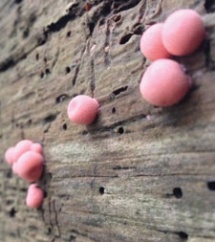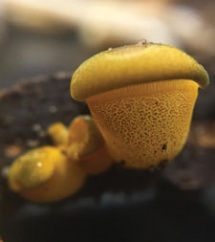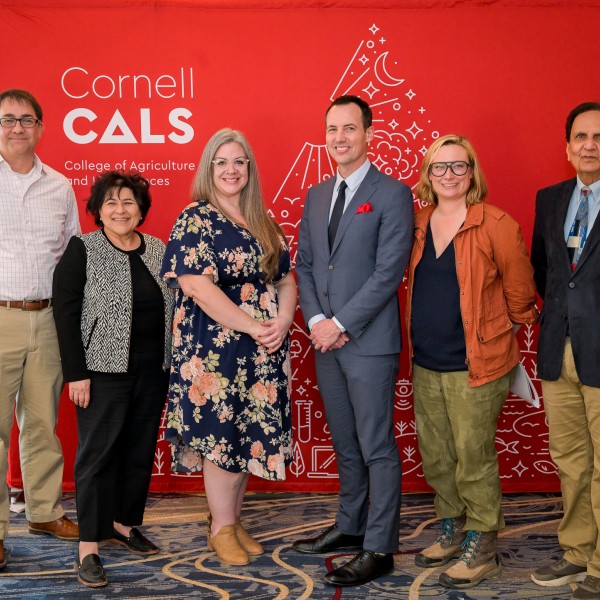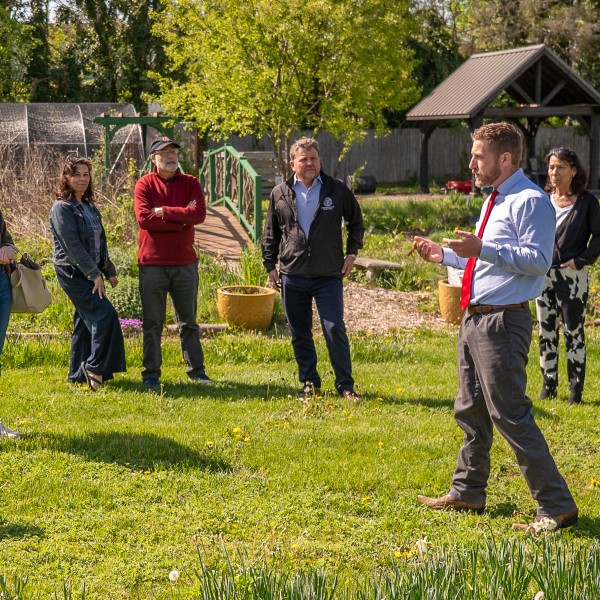Once dormant like a spore waiting for the right conditions to germinate, a club for fungi aficionados has been revived by a group of dedicated students. The Fantastic Fungi Fanatics (FFF) became an active club again last fall, with Rico Lin ’18 as president.
“I found out the club had fizzled out a few years ago,” Lin said. “It just needed someone to lay the groundwork to restart it, someone to grow it and organize it, because the interest was there.”
Lin’s interest was piqued by a course—Magical Mushrooms, Mischievous Molds—taught by club mentor Kathie Hodge, M.S. ’93, Ph.D. ’98, associate professor of mycology, which grew into a full appreciation of the diverse world of fungi. Lin’s fascination was instrumental in re-launching the club, from the unique ecological niche of Cordyceps, fungi that grow on insects and other fungi, to the otherworldly look of many fungi, which the group documents enthusiastically on their social media.
During fall semester they explored fungi as food, cultivating oyster mushrooms using a dorm room-friendly method that employs toilet paper rolls in lieu of logs. The end of their first successful semester was celebrated with an entire feast based on fungi. According to Lin, though, the signature events are the forays that take them to forest and bog to collect specimens, where tasting is discouraged.
“We usually recommend that club members not eat what we find on forays, because sometimes the difference between edible and poisonous ones can be very trivial,” she noted.
They participated in the Peck Foray, a weekend of mushroom collecting and identification that dates back to 1954, as well as a trek to Eames Bog, a preserve managed by Cornell Plantations. Lin’s most memorable find so far: Cordyceps ophioglossoides, which grows on underground, truffle-like fungi. She only recognized her catch when they returned to the lab to work as a group to identify what they’d found, with guidance from Hodge.
“The next time I see one, I’ll know to dig all the way down to find the underground fungus,” Lin said. “Kathie is an amazing teacher. She provides detailed knowledge that helps us learn to identify fungi using taxonomy and characteristics.”
New this spring will be a collaboration with Cornell’s student-run farm, Dilmun Hill, to grow shiitake mushrooms on logs, as well as forays in spring and summer. The club welcomes members from the Cornell and Ithaca communities to join their activities, including some unique holiday celebrations.
“Who wouldn’t love to get one of their grow-your-own petri dish valentines? As the yellow slime mold ate its food, it grew into a living love note,” Hodge said. “The FFF is great group of people. I am so impressed by their enthusiasm and creativity.”








